The project promotes the Research Indigenous Communities of Practice (RICOP) for climate change studies, aiming to provide a platform for the voices, rights, knowledge, and experiences of Indigenous communities to be heard, respected, and negotiated in climate change debates. RICOP seeks to support Amazon Indigenous communities by collaborating with the research team to back local projects, ensure protection, and advocate for the formal recognition of Indigenous People as leaders in climate resilience. Members include Indigenous People and leaders, local communities, practitioners, academics, policymakers, and representatives from governmental and non-governmental organizations. Meetings before and after each research activity are organized to provide opportunities for shared learning between Indigenous People, local communities, academics, and decision-makers.
RICOP Members
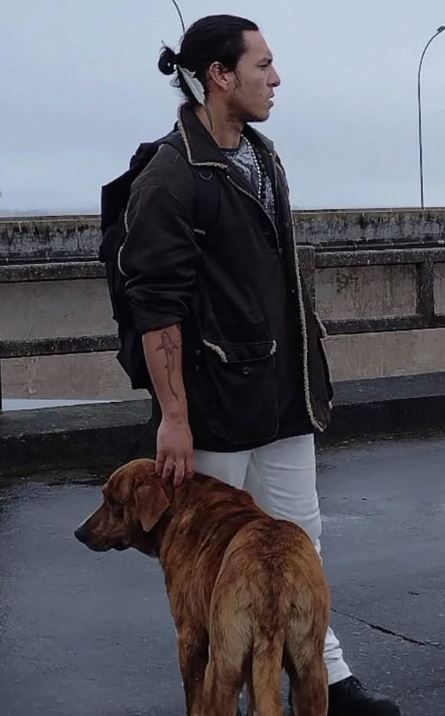
Jefferson Foster
Bachelor’s degree student in Archaeology at the Federal University of Pelotas (UFPel) in Brazil. Indigenous from the Charrúa people, Opatimar (“extended family”) Mar Tanú Sepé. Research Scholarship holder at the Federal University of Pelotas (PBIP-UFPEL). His academic journey involves participation and collaboration in teaching, research, and extension projects in the areas of Anthropology and Archaeology, with an emphasis on Indigenous history and archaeology.
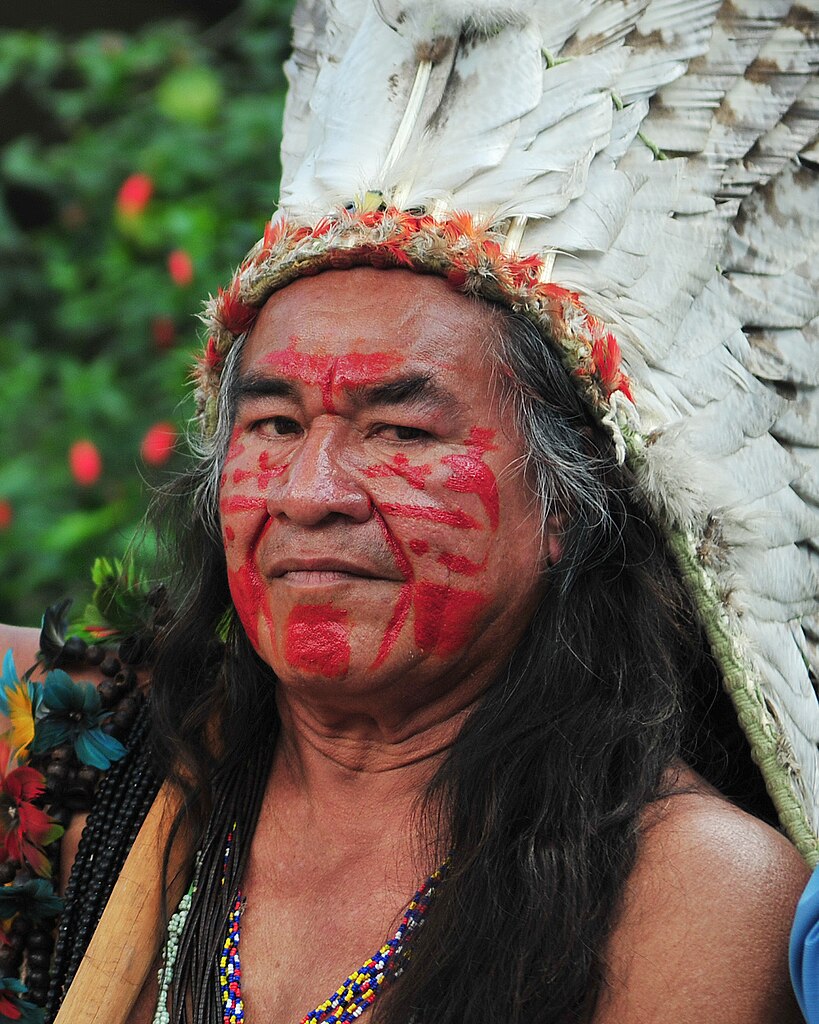
Álvaro Tukano
Indigenous leader of the Tukano ethnicity. Former primary school teacher and author of various letters expressing the demands of Indigenous Peoples, covering topics such as Demarcation of Indigenous Lands, Health and Education, Security, and Preservation of Indigenous Lives and the Environment. Through his letters, he also denounces threats and actual invasions of Indigenous lands, defamation of Indigenous Peoples, racism, and lack of communication with the government. He served as director of the Memorial of Indigenous Peoples (MPI) and authored the book “The World of Tukano Before the Whites,” which explores his perspective and interpretation of Tukano cultural aspects.
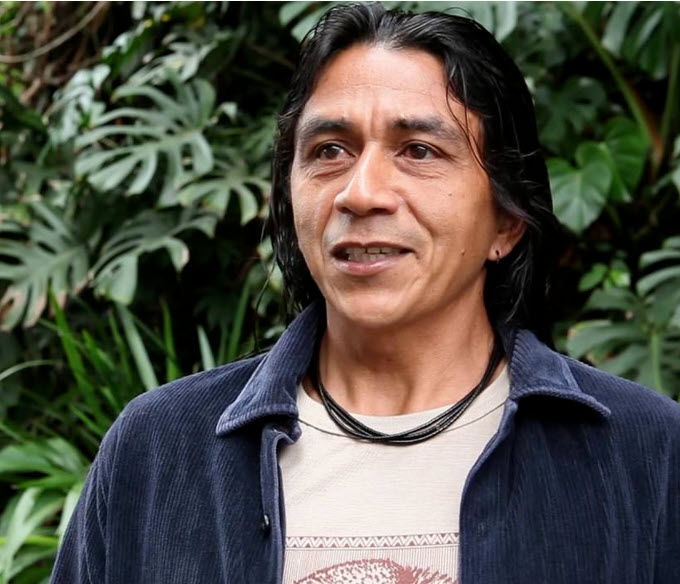
Edson Kayapó
Indigenous leader and Professor at the Federal Institute of Bahia (IFBA) in Brazil. Holds a PhD in Education: History, Politics, Society from PUC-SP, and a Bachelor’s degree in History from the Federal University of Minas Gerais. He also holds a postgraduate degree in History and Historiography of the Amazon from the Federal University of Amapá. An environmentalist, writer, and Indigenous activist, Edson works in the propagation of Indigenous literature and is a member of NIQ/CDH/OAB-SP and a researcher at McGill. He is a speaker, advisor in artistic-educational projects, and a writer awarded by UNESCO and the National Foundation for Children’s and Youth Books. He is also a member of the Advisory Committee for Academic Inclusion and Participation of Indigenous Peoples – CAIAPI/UNICAMP.

Gersen Baniwa
Indigenous leader and Professor of Anthropology at the University of Brasilia (UNB) in Brazil. Gersem is an Indigenous leader, educator, anthropologist, philosopher, activist, and Brazilian writer from the Baniwa Indigenous group. He is the first person from this group to complete his studies and earn a doctorate from UNB. A pioneer, he is also the first Indigenous person in the country to hold a postgraduate degree in social anthropology. Regarding Indigenous presence at the university, he shares, “Other faces, hair, paintings, colours, tastes, flavours, knowledge, actions and ways of feeling, being, doing, living and existing. In other words, these important institutional territories are also being villaged, demarcated and occupied, including in teaching micro-territories”.
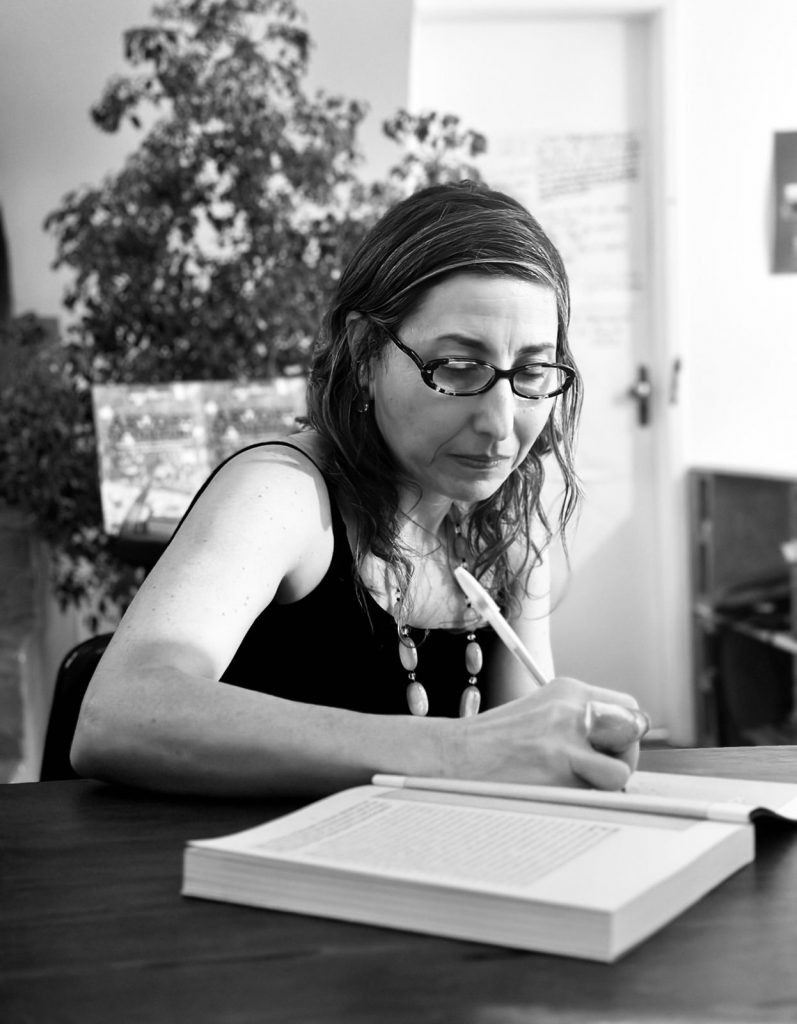
Maira Smith
General Coordinator of Access and Traceability (CGAR) of the Genetic Heritage Department of the Brazilian Ministry of Environment and Climate Change – DPG/MMA. Holds a Bachelor’s degree in Biology (IB-USP), a Master’s degree in Ecology (National Institute of Amazonian Research – INPA/MCTI), and a PhD in Sustainable Development, with a concentration in Environmental Policy and Management (CDS-UnB). Her academic experience spans Ethnoecology and Ethnobotany, Plant Ecology, Historical Ecology in the Amazon, Molecular Genetics, and Domestication of Plants and Landscapes. Professionally, she has extensive experience in Environmental Management of Indigenous Lands, Integrated Management of Protected Areas, and Environmental Policies, with advanced knowledge of legislation on Access to Genetic Heritage, Protection of Associated Traditional Knowledge, and Benefit Sharing for Biodiversity Conservation. She also possesses basic knowledge in Conservation Biology.

Adriana Ramos
Political and Socio-environmental Law Advisor at the Brazilian Socio-environmental Institute (ISA). Studied social communication and is a specialist in environmental policies. She has extensive experience in socio-environmental public policies and coordinates the Socio-environmental Policy and Law Program at the Socio-environmental Institute (ISA), where she has been an advisor since 1995. She is part of the coordination of the Climate Observatory and serves on the board of several organizations. Adriana was part of the Executive Board of the Brazilian Association of NGOs (ABONG) and a civil society representative on the National Environment Council (CONAMA) and the Steering Committee of the Amazon Fund (COFA).
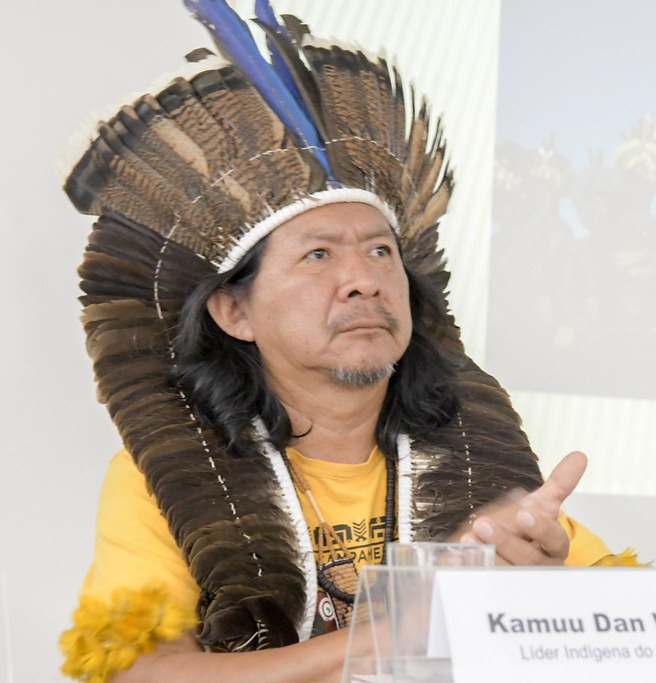
Kamuu Dan
Indigenous writer and author of bilingual books, in Portuguese and Wapichana ancestral language, that narrate Indigenous life, such as resistance and the defence of traditional seeds, biodiversity, and agroforestry. In 2017, he won the 14th FNLIJ/UKA Tamoios Contest for Indigenous Writers with the book ‘O sopro da vida’. His various works aim to value the Wapichana language and highlight Indigenous literature.
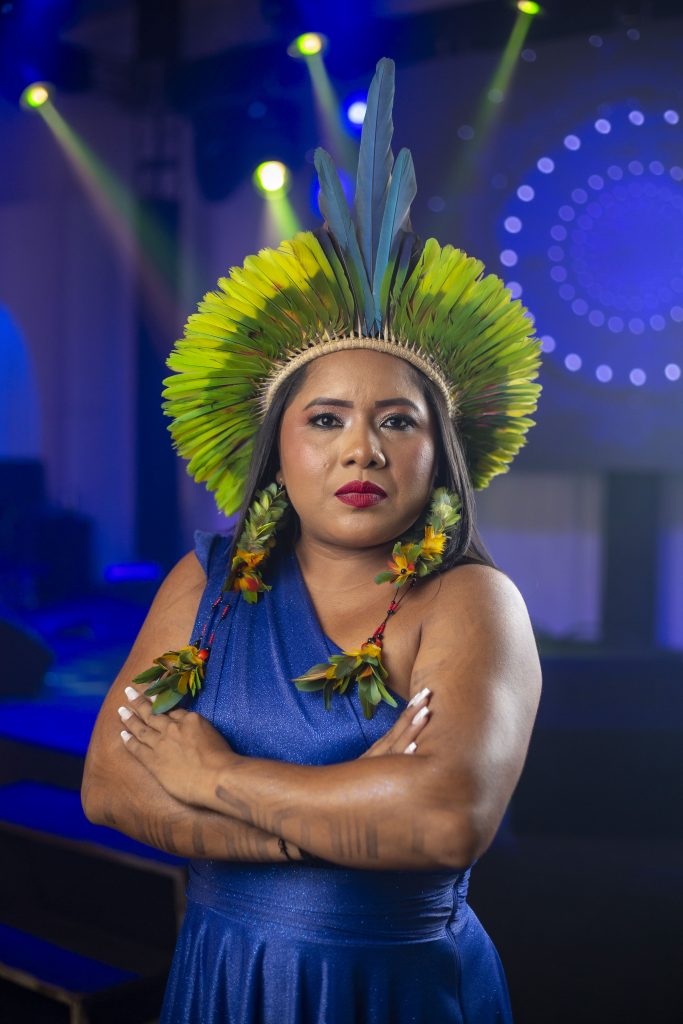
Regilane Guajajara
Indigenous activist and psychologist. Holds a Bachelor’s degree in Psychology from the Federal University of the South and Southeast of Pará in Brazil. Regilane is an artist, craftswoman, mother, and Indigenous activist, serving as an advisor to the Marabá Tucuruí Ethno-Region and the State Secretariat for Indigenous Peoples.
Irani Krenak
Woman Indigenous activist. Indigenous from the Krenak people, Irani is an activist, popular educator, and community leader. She works to promote Indigenous rights, focusing on the appreciation of her people’s culture, spirituality, and traditional practices. Irani is one of the most active voices in the struggle for reparations for the damage caused to the Doce River – sacred to the Krenak Indigenous land – by the Mariana dam collapse in 2015. She participates in projects on environmental education, Indigenous memory, and the mobilisation of Indigenous women in both urban and rural contexts, always emphasising the importance of Indigenous worldviews in rebuilding sustainable relationships with nature.
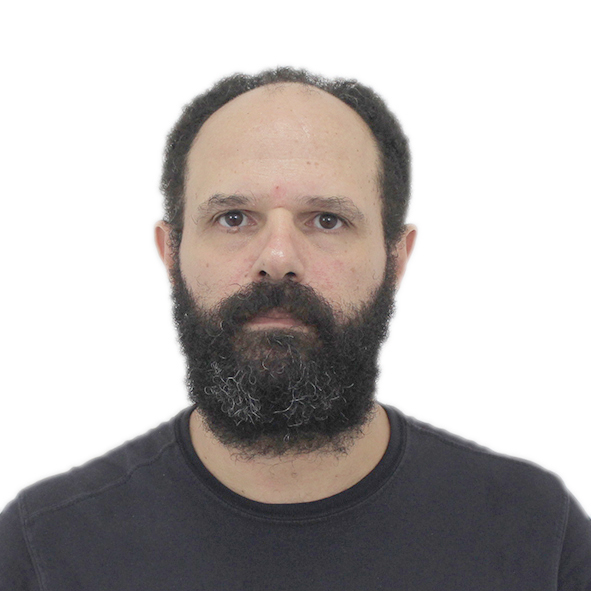
Marcos Paulo Careto
Professor of Architecture at the Federal University of Amazonas (UFAM) in Brazil. Holds a Bachelor’s degree in Architecture and Urbanism (UFRGS), a Master’s in Theory, History, and Criticism of Architecture (PROPAR/UFRGS), a PhD in Theory, History, and Criticism of Architecture (PROPAR/UFRGS), and is an adjunct professor at the Faculty of Technology (UFAM). He is the executive editor of the scientific journal Amazônia Moderna [ISSN 2494-7494] and leader of the CNPq/UFAM AMA research group – Modern Architecture in the Amazon. Marcos currently represents Amazonas on the Superior Council of the Institute of Architects of Brazil and the Historical and Artistic Heritage Council of the State of Amazonas.
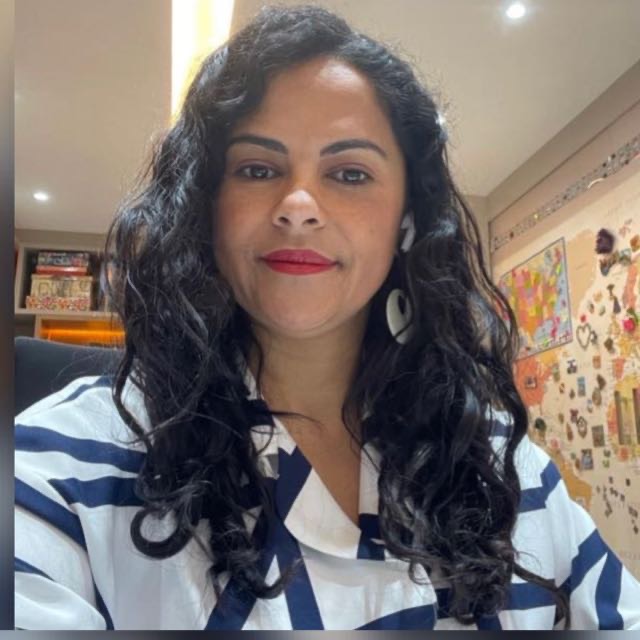
Cyntia Carvalho Silva
Deputy Chief Delegate (DECRIN/PCDF) in Brasilia, Brazil. Deputy Chief of the Brazilian Department for the Repression of Crimes due to Racial, Religious or Sexual Orientation Discrimination (Decrin/PCDF), a specialist in human rights and a PhD in sociology. Cyntia has spearheaded the creation and implementation of public policies to protect minority groups, including the elderly, black LGBTQIA+ individuals, religious groups, and people with disabilities. She pioneered a protocol for police assistance to LGBTQIA+ people, which preceded the Supreme Federal Court’s criminalisation of transphobia by a month. Additionally, Cyntia developed a protocol to support victims of crimes against the elderly and was invited by the Brazilian Ministry of Justice to write a course for police officers in the National Public Security System.
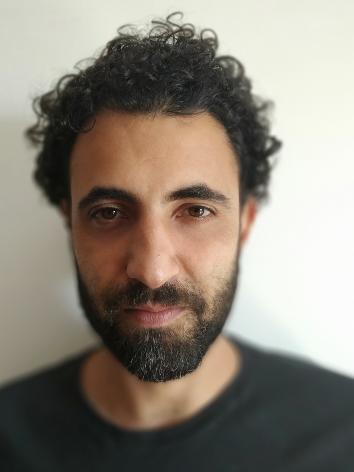
Fabiano Bechelany
Professor of Anthropology at the Federal University of South and Southeast of Pará (Unifesspa) in Brazil. Social scientist with expertise in Anthropology who currently works at the Brazilian Ministry of Racial Equality, in the Secretariat for Policies for Quilombolas, Traditional Peoples and Communities of African Matrix, Terreiros, and Roma (SQPT). He has research experience with Indigenous peoples and traditional communities, conducting fieldwork in the Brazilian Amazon. His work is situated within the fields of Indigenous ethnology, environmental anthropology, and the anthropology of technology, with a particular focus on ecological relations, human-animal interactions, and technodiversity. He also teaches in a postgraduate (lato sensu) programme on Teaching and Management in Indigenous School Education at the Federal University of South and Southeast of Pará (Unifesspa).
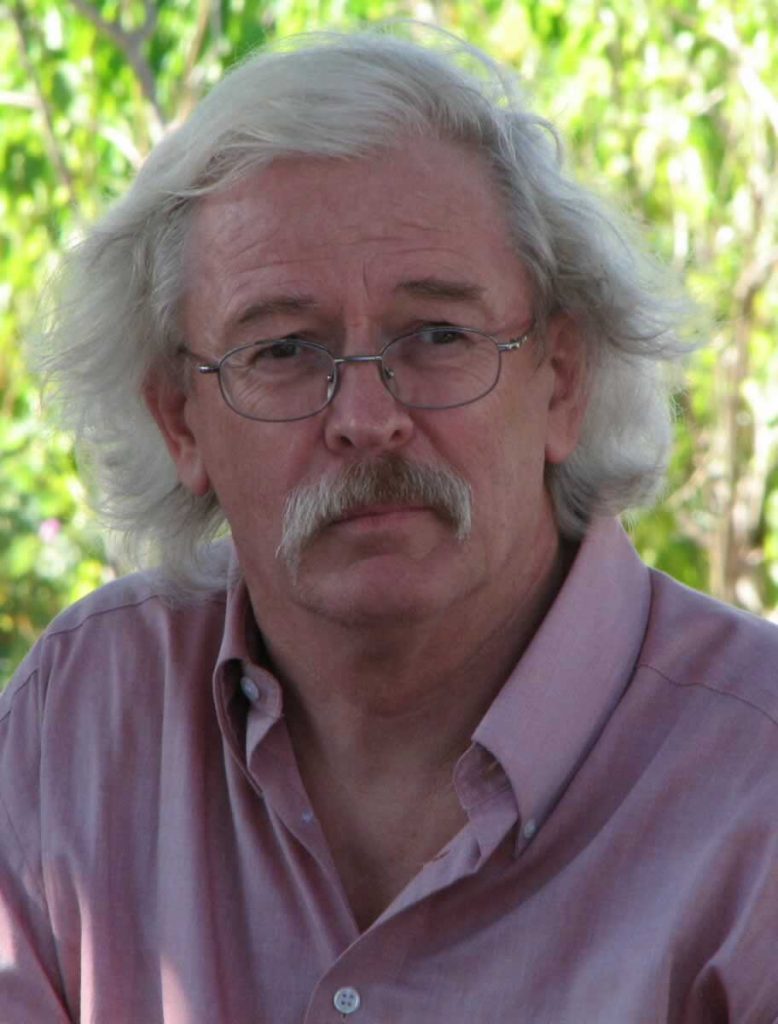
Hartmut Günter
Professor at the University of Brasilia (UNB), Brazil, in Psychology. Studied psychology at the universities of Hamburg (1966-67) and Marburg (1967-68) in Germany, and holds a degree in psychology from Albion College, Michigan, USA (1969). He completed his master’s degree in experimental psychology (AEC) at Western Michigan University (1970) and his doctorate in social psychology at the University of California, Davis (1975). Professor emeritus at the University of Brasília, he currently works as a senior research associate and coordinator of the Environmental Psychology Laboratory. He continues to teach environmental psychology and research planning, conducting research in the field of environmental psychology, particularly on urban quality of life and traffic psychology.
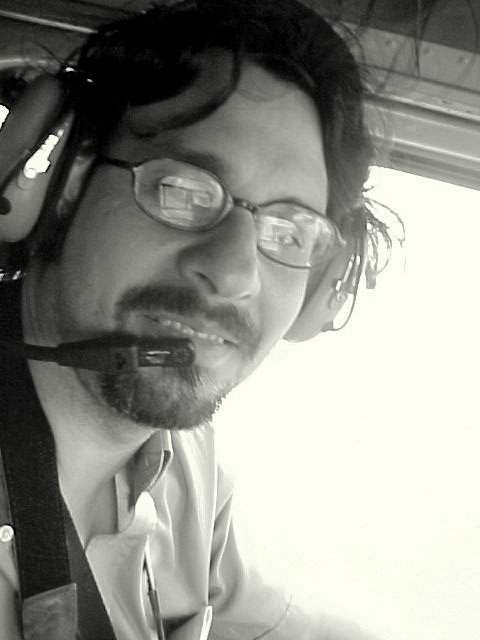
Antônio Carlos Porciúncula Soler
Municipal Secretary of Environment and Climate Change of Rio Grande, Brazil. Member of the National Environmental Council (CONAMA) and specialist in environmental law in Brazil. Holds a Bachelor’s degree in Law (FURG), and is a specialist in Human Ecology (UNISINOS) and Political Science (ISP/UFPel). He has a Master’s and PhD in Environmental Education (FURG) and is a pioneer in Environmental Law in the state of Rio Grande do Sul. His expertise includes Environmental Law, Fisheries and Port Legislation, Maritime Law, and Fundamental Rights. He has served on the National Water Resources Council (CNRH), the Coordinating Committee of the National Plan for Protected Areas, and the Brazilian Committee for the UNESCO Man and the Biosphere Program (COBRAMAB). He was also a member of the Commission for Sustainable Development Policies and National Agenda 21 (CPDS) and the National Wetlands Committee. Currently, he is a member of the National Environmental Council (CONAMA) and the State Environmental Council (CONSEMA-RS), among other councils.
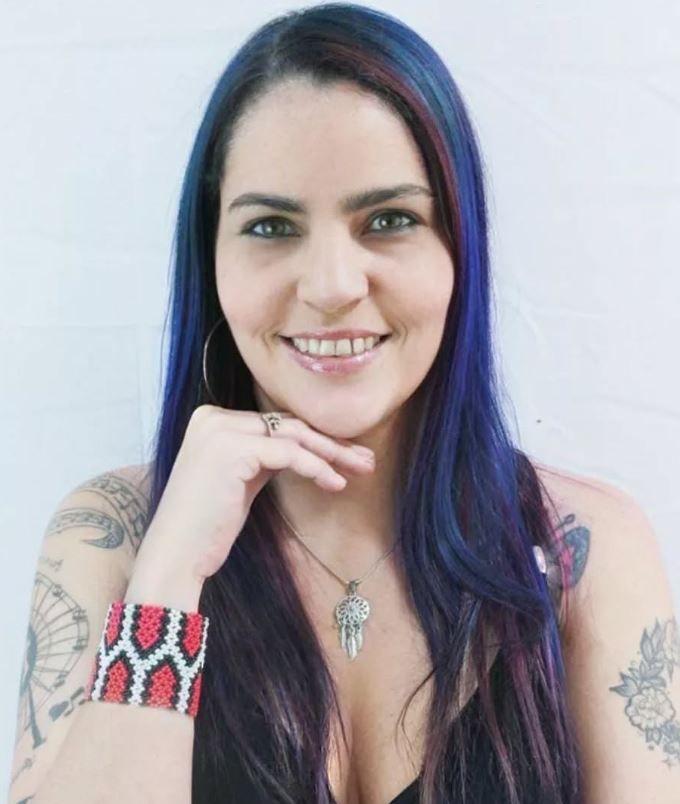
Lyanna Soares
Cultural Producer. Photographer, filmmaker, and cultural producer who works in support of Indigenous peoples living in Brasília, Federal District, Brazil.
